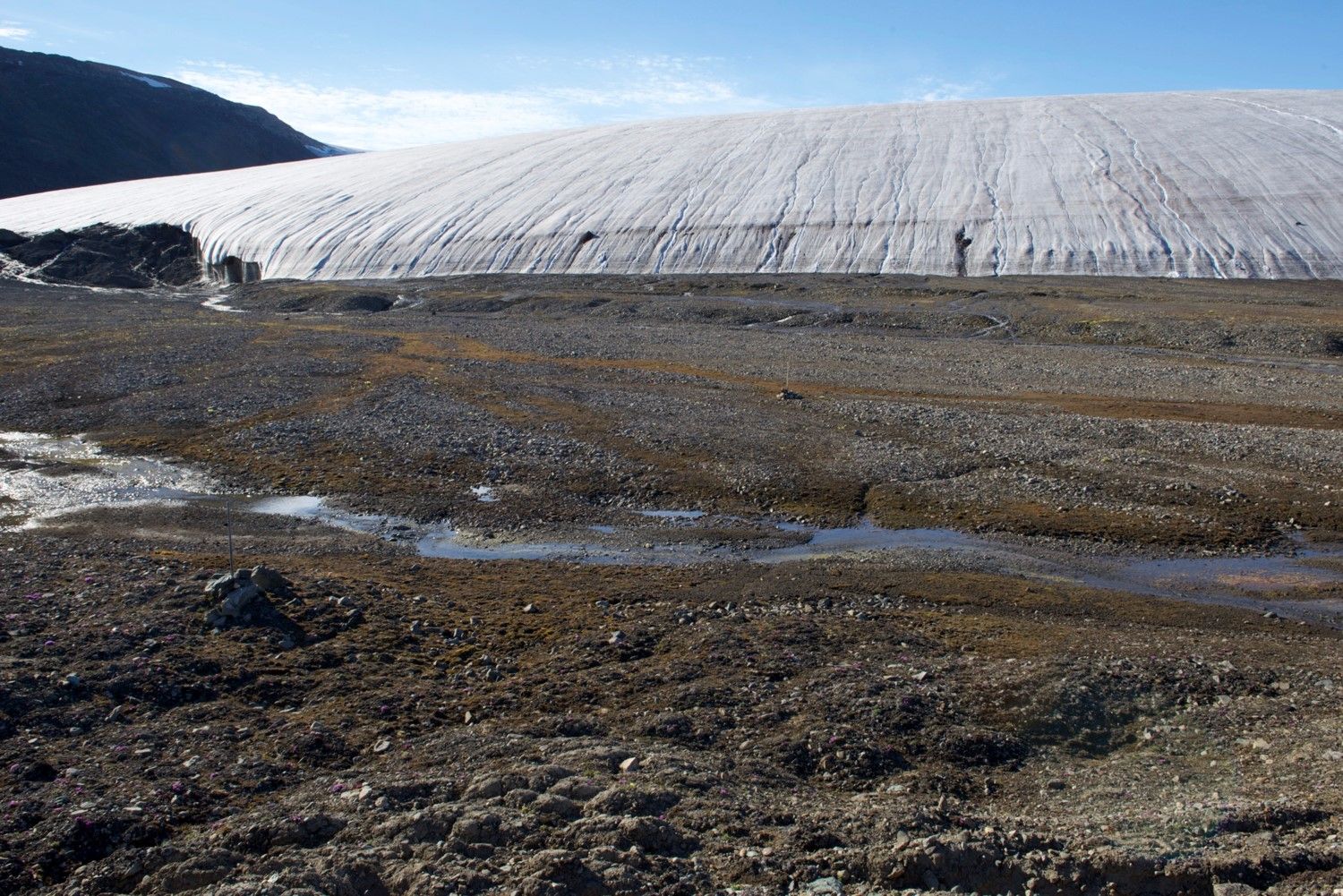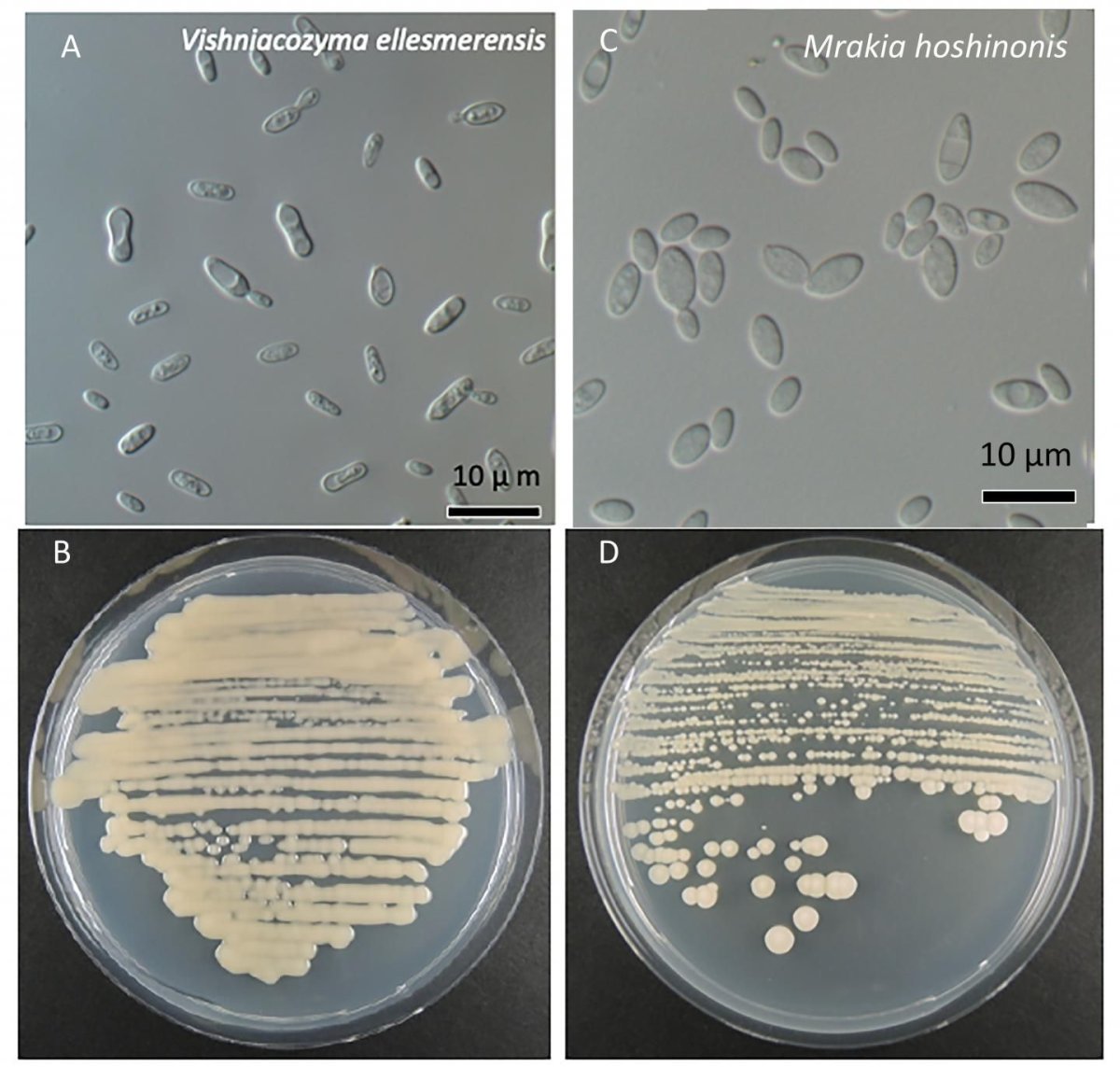
An international team of researchers has discovered two species of fungi entirely new to science in sediments at the front of a rapidly melting glacier on Ellesmere Island, located in Canada's far north.
The two species are both specially adapted to grow in the extreme cold of their environment, where temperatures regularly hover below freezing and there is a distinct lack of vitamins. That's according to two related papers published in the International Journal of Systematic and Evolutionary Microbiology.
The researchers from Laval University, Canada, Japan's National Institute of Polar Research (NIPR) and The Graduate University for Advanced Studies, Tokyo, named one of the fungi Mrakia hoshinonis after Japanese scientist Tamotsu Hoshino, who has made significant contributions to our knowledge of fungi in the polar regions. The second species was named Vishniacozyma ellesmerensis in reference to the island where it was discovered—the third largest in Canada and tenth largest in the world.

"These two new fungal species can grow in sub-freezing temperatures," Masaharu Tsuji, first author of both papers and a researcher at NIPR, told Newsweek. "Moreover, they do not require amino acids and vitamins for growth, therefore, the characteristics of the two new species are very unique. In general, microbes cannot grow in sub-freezing temperatures because of reduced enzyme reaction rates, transport-system efficiency, and membrane fluidity etc."
Like in many regions around the globe, the Walker Glacier is retreating at a worrying rate. In fact, the scientists said that in 2016—when the fungi were collected—the glacier was melting two-and-a-half times faster than the average rate over the past half a century.
"Climate-related effects have been observed in this region over the last 20 years," Tsuji said in a statement. "Soon, some of the glaciers may completely melt and disappear."
It has been estimated that there could be anywhere between 2.2 and 3.8 million species of fungi on Earth, according to a 2017 study published in the journal The Fungal Kingdom. However, only a small percentage of these are known to science.
Despite our relative ignorance, we do know that fungi play an incredibly important role in all manner of ecosystems due to their essential role as decomposers which recycle nutrients.
"After the glacial retreat, the rock and sediments that are newly exposed at the surface have low amounts of available nutrients," Tsuji said. "These surfaces become habitats for fungi that can grow under oligotrophic [an environment that is lacking in nutrients] and low-temperature conditions."
"Of these, cold-adapted fungi work as decomposers and thereby contribute to nutrient cycling in polar ecosystems," Tsuji said. "Since the two new fungal species decompose a variety of organic materials even at sub-freezing temperatures, they may play a key role in the cold soil ecosystems that develop after glacier retreat."
If the glacier melts, fungi such as the newly discovered species could lose their habitat. And this could have negative consequences for the ecosystems that rely on them, according to the researchers.
In future, the team says that they plan to conduct further research in the polar regions to survey the state of fungal life in different areas.
"The knowledge of fungi inhabiting the Arctic is still fragmentary," Tsuji said. "Eventually, we plan to compile all of our studies to provide an overview of terrestrial ecosystems in the Arctic and Antarctic regions."
This article was updated to include comments from Masaharu Tsuji.
Uncommon Knowledge
Newsweek is committed to challenging conventional wisdom and finding connections in the search for common ground.
Newsweek is committed to challenging conventional wisdom and finding connections in the search for common ground.
About the writer
Aristos is a Newsweek science reporter with the London, U.K., bureau. He reports on science and health topics, including; animal, ... Read more
To read how Newsweek uses AI as a newsroom tool, Click here.








